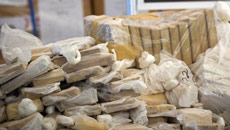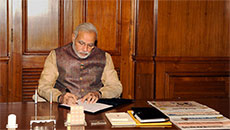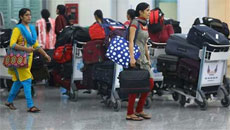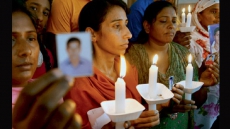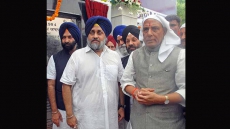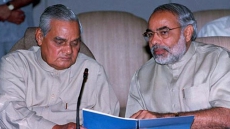Can the new NDA government break the existing political vendetta in the administrative system and open space for all chief ministers, irrespective of their political affiliation, to collectively work and take ownership of the much-awaited nation building process and help achieve the much needed growth in selected worst performing states on major human development indicators? In this direction, a national program with focus and complete concentration on specific areas and issues can be an option to bring balanced inclusive growth in the country.
There are human development issues with international significance and implications that require urgent national attention in spite of the fact that they may come under the purview of the states. The recent Millennium Development Goals (MDG)-14 report took pot shots at India's progress on vital human development indicators. The report revealed that almost 82 percent of people defecate in the open in India and Nigeria; almost one-third of all global maternal deaths are concentrated in India, with an estimated 50,000 deaths (17 per cent) annually; India had the highest number of under-five deaths in the world in 2012 at 1.4 million and one-third of the world's 1.2 billion extreme poor lived in India alone.
It is also shocking to find that more than 70 percent households in five states do not have any form of sanitation facilities. The toilet coverage for these five states is also below 20 percent, as reported in Census-2011.
Large sections of the population living in extreme poverty and face acute health and social problems. Although most of the problems are state specific, it has already taken a shape of a national crisis and requires urgent national attention. If the current state-specific pattern of implementation is continued, India cannot probably be able to make any major headway in reaching minimum development goals in the next 10 years.
To speed up the progress, there is need for a concentrated and apolitical and honest push to develop a Special Social Development Corridor (SSDC). This will encompass at least 200 such districts as a single unit of implementation within the corridor. The SSDC will provide national solutions in areas where the states have failed to showcase tangible results even after huge investments.
The SSDC can initiate a special result-oriented campaign to reach the targets expected in the MDG. It can be promoted as a new implementing entity with a pool of experts being outsourced from government departments and the private sector to focus their energy and resources in the areas like infant mortality, maternal mortality, sanitation and toilet use.
The SSDC will be an apolitical implementing entity and concentrate on social development efforts in the selected 200 most-underdeveloped regions from a single central operational point in close coordination with the state administrations. When there is a crime or corruption, there are central agencies to counter this. However, when there is no development happening and no timeframe is fixed to achieve human development indicators, why cannot the country experiment with a new model that can take national responsibilities on issues that affect the people the most and the image of the country at worst?
